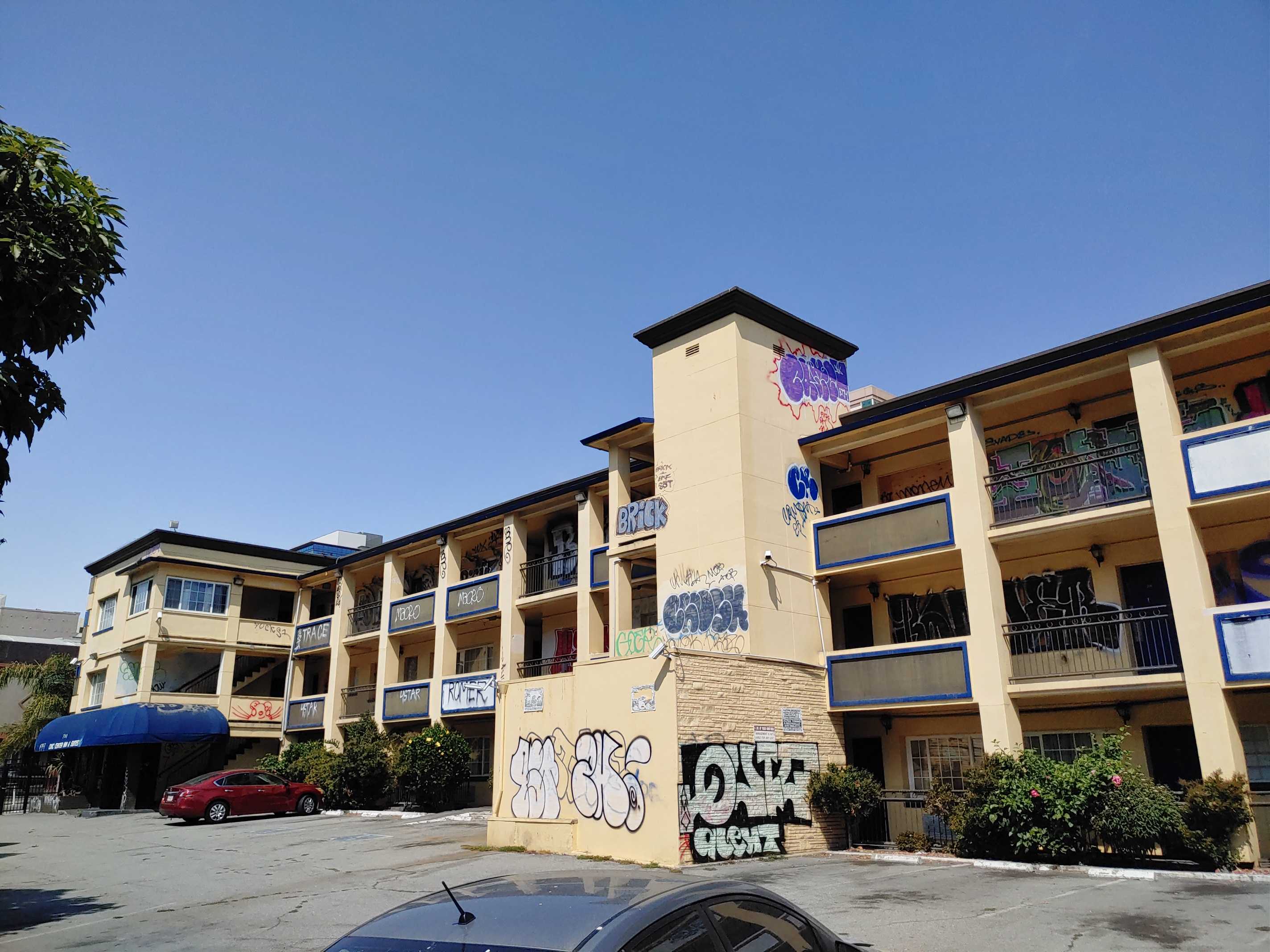The Standard’s Mike Ege looks into a question from a reader: Why doesn’t San Francisco convert abandoned hotels into homeless housing?
The answer is that it’s complicated. And politically radioactive.
Back in September, we brought you the story of the Civic Center Inn, a blighted hotel at the corner of Ellis and Polk Streets in the heart of the Tenderloin.
The graffiti-splattered property was being listed at the extravagant price of $21 million, despite the fact that it was boarded up, filled with squatters, and surrounded by homeless encampments.
Folks voiced their outrage over the grim state of things surrounding the ruined hotel.
Controversial opinion: the city should buy this building and demolish it. https://t.co/OiqgFo6in7
— Stephen Martin-Pinto (@StephenMPinto) September 9, 2023
The owner of the former Travelodge, Vijay Investments, offered to sell the property to the city, but the Department of Homelessness and Supportive Housing opted out, citing extreme costs for cleaning it up and converting it into more permanent housing.
And so the hotel continued to sit and fester. Some asked, why not just seize it? If it couldn’t be turned into supportive housing, why couldn’t the city use it as a shelter? Or, as District 7 Supervisor hopeful Stephen Martin-Pinto suggested at the time, why not at least tear it down?
In the meantime, somebody is starting to clean up the Civic Center Inn.
The encampment outside of the Civic Center Inn is being cleared away everyone refused shelter and treatment and the SPCA are here dealing with the puppies in is incredible. The hotel has a new paint job on it. pic.twitter.com/jGaohMxRf2
— jj smith (@war24182236) September 28, 2023
But what about other blighted properties? Could they be seized and put to use as shelter for some of the nearly 8,000 homeless people in San Francisco?
During the height of the COVID-19 pandemic, the city leased 29 hotels to house medically vulnerable people living on the streets. Mainly using federal state and emergency aid, San Francisco provided temporary housing for more than 3,300 people. But the effort ended up costing the city more than it had bargained for. Some hotel owners filed the multi-million dollar damage claims against the city once the program ended, contending that homeless clients caused more than the usual wear and tear on rooms.
There was talk at the time of outright seizing hotels as emergency shelters. At a Board of Supervisors meeting in April 2020, Supervisor Hillary Ronen cited a memo from then-City Attorney Dennis Herrera outlining the emergency powers Mayor London Breed or the city’s health officer could use to “commandeer” hotels. In the end, however, all sides agreed to lease the hotels instead. With the Covid emergency now behind us, that special power is no longer available.
What is still available is eminent domain, a special power by which governments can force property owners to sell for just compensation if the property is required for public use. Traditionally, governments invoke eminent domain for large-scale infrastructure projects, such as when California took possession of Central Valley farmland for a high-speed rail project, or when San Francisco took over sites in Chinatown to build the Central Subway.
Eminent domain can also be used to seize property for “economic improvement” purposes, and as such, is part of the history of “urban renewal” that displaced more than 20,000 mostly Black San Francisco residents in the 1950s and ’60s. That dark history may explain why the city is leery of using this power. “Only the Board of Supervisors, by a super-majority, may authorize eminent domain,” a spokesperson for City Attorney David Chiu told The Standard.
Seizing a recalcitrant owner’s property to deal with blight and provide shelter for people experiencing homelessness may seem like an easy answer, but in San Francisco, at least, it’s complicated and problematic enough to make the juice not worth the squeeze. In the words of one city supervisor, who spoke on background: “A property seizure is definitely a hypothetical to avoid answering.”
